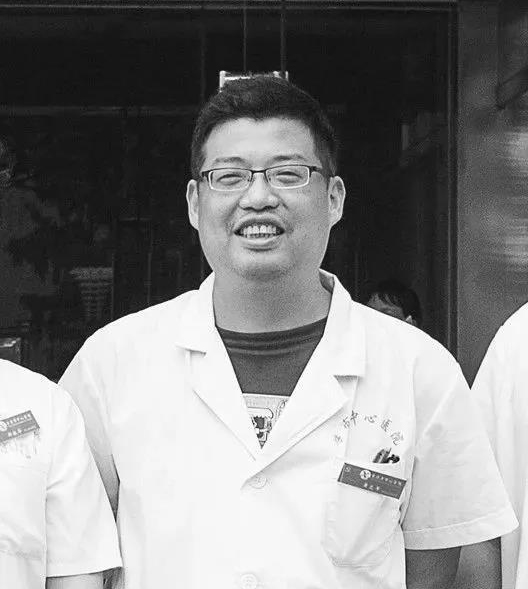

"Take me home soon.” These were the last words that Huang Wenjun, a doctor at the Central Hospital of Xiaogan, central China’s Hubei province, said to his wife, who has also been fighting on the front line of the battle against the novel coronavirus epidemic.

Huang Wenjun, late doctor from the Central Hospital of Xiaogan. (Photo from the official website of the Central Hospital of Xiaogan)
On Feb. 23, Huang died of pneumonia caused by the novel coronavirus, at the age of 42.
Xiaogan is one of the worst-hit Chinese cities in the epidemic. Its first case of novel coronavirus infection was discovered on Jan. 24, eve of the Chinese Lunar New Year.
On the same night, Huang, who was an associate chief physician of the department of respiratory medicine at the hospital, texted the director of the department and asked to join the battle against the virus.
“As the famous Qing Dynasty poem goes, ‘In line with the conviction that I will do whatever it takes to serve my country even at the cost of my own life, regardless of fortune or misfortune to myself,’ I want to be transferred to an isolation ward to join in the concerted efforts to save our country,” Huang said.
In the early stages of the epidemic, the departments of respiratory medicine and critical care medicine, as well as fever clinics, were packed with patients every day.
The department of respiratory medicine received 351 outpatients on Jan. 23, 109 of whom were seen by Huang.
In addition to performing his duties in the department of respiratory medicine and fever clinic, Huang also made rounds of the wards, taking part in consultations and treatments for novel coronavirus cases as the department’s chief resident doctor.
From Jan. 21 to Jan. 26, Huang worked around the clock helping outpatients and inpatients.
On Jan. 27, Huang began to show symptoms of pneumonia caused by the novel coronavirus. After two days of home quarantine, he was sent to hospital by his wife Hu Xiaoping, a doctor who works at the hospital’s clinical lab.
"He had a simple and honest smile, and was never anxious or impatient. He seldom left work or had a meal on time,” said one of Huang’s colleagues.
Huang’s students also had kind words to say of him. “His class was full of humor, and he was easygoing and had rich experience in outpatient services.”
"He was patient, and never interrupted patients when they talked about their condition,” one of Huang’s patients said.
For Huang, it was just part of the job. “That’s what doctors do. It’s inevitable. It’s determined by the profession.”
 Fire brigade in Shanghai holds group wedding
Fire brigade in Shanghai holds group wedding Tourists enjoy ice sculptures in Datan Town, north China
Tourists enjoy ice sculptures in Datan Town, north China Sunset scenery of Dayan Pagoda in Xi'an
Sunset scenery of Dayan Pagoda in Xi'an Tourists have fun at scenic spot in Nanlong Town, NW China
Tourists have fun at scenic spot in Nanlong Town, NW China Harbin attracts tourists by making best use of ice in winter
Harbin attracts tourists by making best use of ice in winter In pics: FIS Alpine Ski Women's World Cup Slalom
In pics: FIS Alpine Ski Women's World Cup Slalom Black-necked cranes rest at reservoir in Lhunzhub County, Lhasa
Black-necked cranes rest at reservoir in Lhunzhub County, Lhasa China's FAST telescope will be available to foreign scientists in April
China's FAST telescope will be available to foreign scientists in April "She power" plays indispensable role in poverty alleviation
"She power" plays indispensable role in poverty alleviation Top 10 world news events of People's Daily in 2020
Top 10 world news events of People's Daily in 2020 Top 10 China news events of People's Daily in 2020
Top 10 China news events of People's Daily in 2020 Top 10 media buzzwords of 2020
Top 10 media buzzwords of 2020 Year-ender:10 major tourism stories of 2020
Year-ender:10 major tourism stories of 2020 No interference in Venezuelan issues
No interference in Venezuelan issues
 Biz prepares for trade spat
Biz prepares for trade spat
 Broadcasting Continent
Broadcasting Continent Australia wins Chinese CEOs as US loses
Australia wins Chinese CEOs as US loses